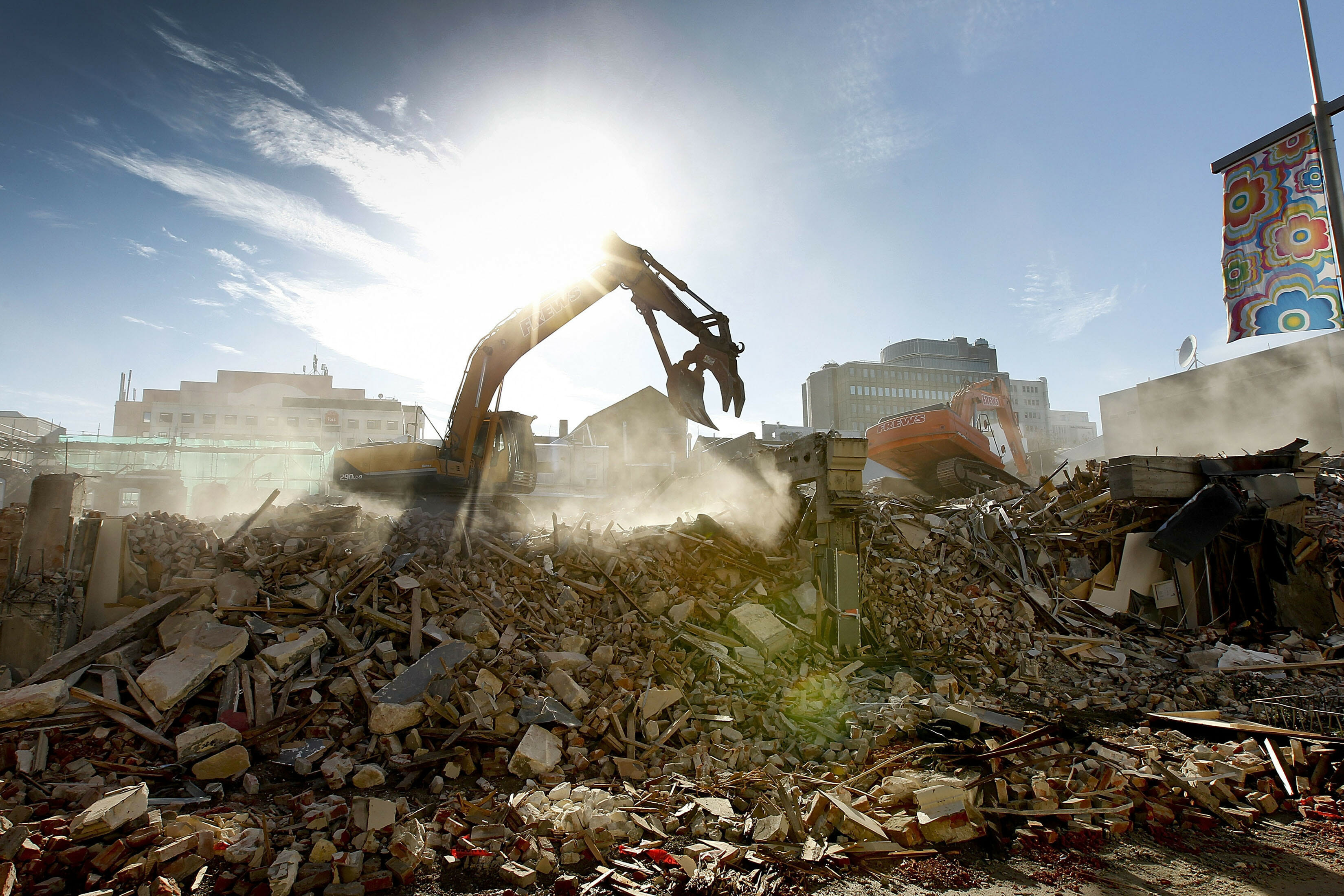
Despite its peace, Christchurch painfully used to trauma
CHRISTCHURCH, New Zealand (AP) — Ahmed Tani settled in Christchurch as a refugee in 1999. After his escape from civil war in Somalia, he saw the New Zealand city as a place of peace, a haven.
Christchurch was more than just physically distant from the bitter strife he had previously known. With its leafy streets, vibrant gardens and green public parks, the Garden City, as it is known, was even visually a world away from the desolation of Tani’s war-scorched past.
A teacher in Somalia, he first became a taxi driver in Christchurch, a choice made by many refugees whose qualifications are often not accepted in their new homeland. He struggled at first to settle into a place so different from any he had known. But bit by bit he accepted Christchurch and it accepted him. It became home.
That feeling of peace was shaken for the first time at lunchtime Feb. 22, 2011, when a magnitude 6.3 earthquake crumbled many of the buildings in Christchurch’s city center. People were trapped under the rubble and rescuers raced to save them in time. In the end, 185 people died.
For years after the quake, Christchurch was a city without a heart. Many of the buildings that formed its center had been destroyed or had to be demolished, and even its iconic central Anglican cathedral was partly collapsed. Schoolchildren who lived through the quake manifested higher levels of stress and anxiety than peers elsewhere in New Zealand.
Gradually though, Christchurch rebuilt, dragging itself up again both physically and spiritually. New buildings sprang from old and the community formed stronger bonds that allowed a human resurgence, a rebirth.
But the idyll of Christchurch was shattered again on Friday.
Tani was walking toward the Al Noor mosque for afternoon prayers. He was only a few hundred yards away when he heard the sound of gunfire for the first time since he left Somalia two decades before.
A racist gunman, steeped in hatred of Muslims and immigrants, opened fire on the house of prayer, the first of two shooting rampages that would leave 50 dead in New Zealand’s worst terrorist attack.
“I was really frightened,” Tani said. “We were living in Christchurch in peace and harmony. This is the first time we have had this. We have to realize this can happen anywhere.”
For the second time in a decade, Christchurch faces the task of restoring a shaken sense of faith, of community, of security.
Christchurch Mayor Lianne Dalziel said everyone would again pull together.
“That’s what got us through the earthquakes,” she said. “We will come back from this and we will continue our path of welcoming people from all nations, all religions, from all cultures to our city.”
She said the previous experience with the earthquake would help the city get through this.
“The strength of the ties among the people that live in the communities, that is going to be the measure of the recovery,” she said.
Coming together to support others and to remember was a key part of the recovery then. In the days and weeks after the quake struck, strangers would stop each other in the street, often embrace and ask, “Are you OK?”
At the time of the earthquake, Tani was working at the group he founded — the Christchurch Refugee Resettlement and Resource Centre — to help other refugees settle and to build new lives.
In the days after, Tani walked a city in which roads had been rendered impassable and knocked on the doors of hundreds refugee families to ensure they were safe. For months and even years after, Tani’s center provided a rallying point for refugees, many of whom had escaped wars only to be confronted with the lasting trauma of living through a natural disaster.
On Saturday, Tani hosted New Zealand Prime Minister Jacinda Ardern at a healing meeting of Muslim leaders and delivered a message that hatred would have no place in the city that had adopted him.
“Christchurch is a peaceful city. The people of Christchurch, they are very friendly and they are very helpful people,” he said. “I’ve been in Christchurch for the last 20 years and I’ve never met anyone who even talked in a wrong way.”
He said people in Christchurch have always been willing to lend a hand to refugees, for example by responding to requests for donations of furniture in less than an hour.
“That is Christchurch,” Tani said. “Christchurch is not what we were seeing yesterday.”
___
McMorran reported from Wellington, New Zealand.
The Western Journal has not reviewed this Associated Press story prior to publication. Therefore, it may contain editorial bias or may in some other way not meet our normal editorial standards. It is provided to our readers as a service from The Western Journal.
Truth and Accuracy
We are committed to truth and accuracy in all of our journalism. Read our editorial standards.
Advertise with The Western Journal and reach millions of highly engaged readers, while supporting our work. Advertise Today.












